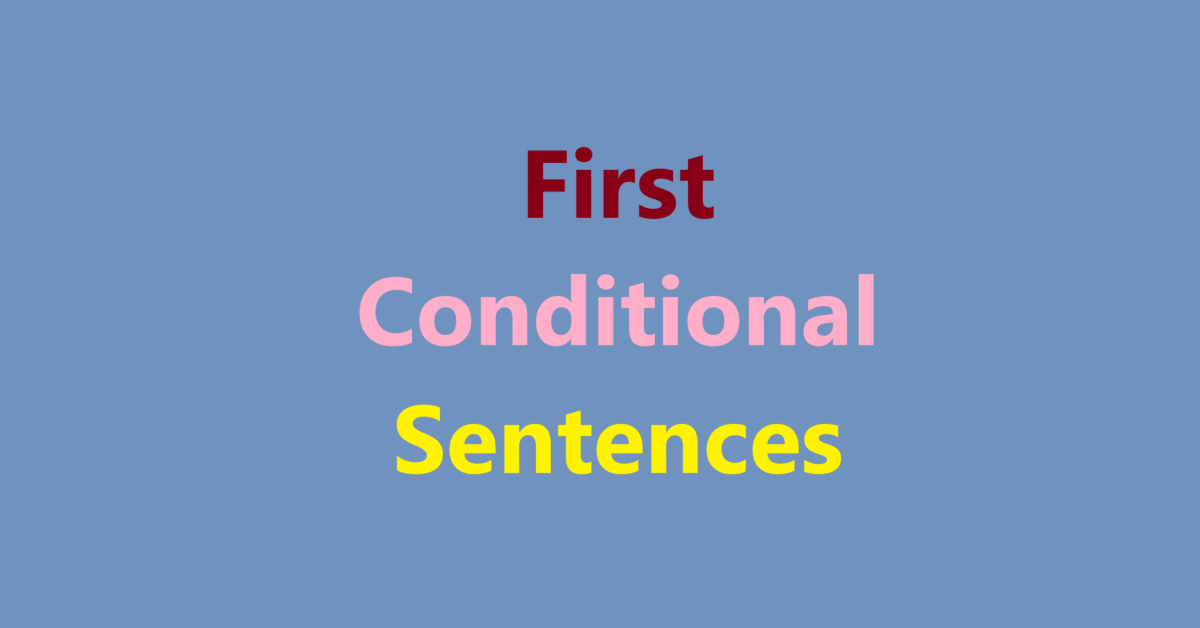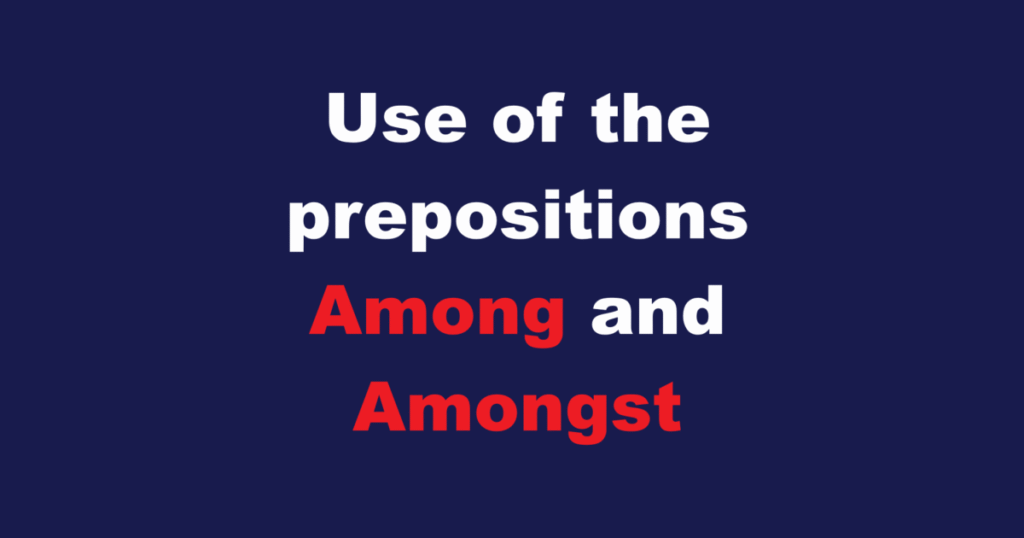First conditional sentences are used to express real and possible situations in the future. They typically describe outcomes that are likely to happen if a certain condition is met. Here’s a comprehensive overview:
Structure
First conditional sentences consist of two main parts:
- If-clause (condition): Present simple tense
- Main clause (result): Future simple tense (will + base verb)
Formula:
If + present simple, will + base verb.
Examples
- If it rains, we will stay indoors.
- If you study, you will pass the exam.
- If she calls, I will answer the phone.
Usage
First conditional is used in the following contexts:
- Real Future Possibilities: To state situations that are likely to happen in the future.
- If I finish my work early, I will go to the cinema.
- Promises: To make promises or threats.
- If you finish your homework, I will take you out for ice cream.
- Plans or Decisions: To express plans based on a certain condition.
- If it’s sunny tomorrow, we will have a picnic.
Special Notes
- Variations in the Main Clause: You can replace “will” with other modal verbs like “can,” “may,” or “might” to express different degrees of certainty or ability.
- If you study hard, you might succeed.
- If it rains, we can go to the mall instead.
- Inversion of Clauses: If the “if” clause comes after the main clause, no comma is needed.
- We will stay indoors if it rains.
- Negative Form: You can form negative sentences by adding “not” after “will.”
- If it doesn’t rain, we will go for a walk.
Common Mistakes
- Incorrect Tense Usage: Ensure the “if” clause uses the present simple and the main clause uses “will.”
- Incorrect: If I will study, I will pass.
- Correct: If I study, I will pass.
Questions in First Conditional
You can also form questions with the first conditional:
- What will you do if it rains?
- If I finish my homework, will you take me out?
Summary
First conditional sentences are an essential part of English that expresses real and possible future events based on specific conditions. They are straightforward to construct and provide a clear way to communicate planned actions and contingencies.
Practice first conditional sentences
Here are some exercises to help you practice first conditional sentences, along with answers for self-checking.
Exercise 1: Fill in the Blanks
Complete the sentences using the correct form of the verb in parentheses to create first conditional sentences.
- If it _______ (rain), I _______ (stay) home.
- If you _______ (not hurry), you _______ (miss) the bus.
- If she _______ (study) hard, she _______ (pass) the exam.
- If they _______ (invite) us, we _______ (go) to the party.
- If I _______ (finish) work early, I _______ (call) you.
Answers for Exercise 1:
- rains / will stay
- don’t hurry / will miss
- studies / will pass
- invite / will go
- finish / will call
Exercise 2: Rewrite the Sentences
Transform the following sentences into first conditional sentences.
- The weather is nice. We have a picnic.
- If the weather is nice, we will have a picnic.
- You invite me. I will come to your party.
- If you invite me, I will come to your party.
- They complete the project. They will get a bonus.
- If they complete the project, they will get a bonus.
- I see her. I will tell her the news.
- If I see her, I will tell her the news.
- He doesn’t pass the test. He will retake it.
- If he doesn’t pass the test, he will retake it.
Exercise 3: Create Your Own Sentences
Write your own first conditional sentences based on the prompts below.
- Rain:
- If it rains tomorrow, I will stay home and watch a movie.
- Study:
- If you study for the exam, you will do well.
- Travel:
- If I find a good deal on flights, I will book a trip.
- Finish work:
- If I finish my work on time, I will join you for dinner.
- Get tickets:
- If they get tickets to the concert, I will go with them.
Exercise 4: Multiple Choice
Choose the correct completion for each first conditional sentence.
- If it _______ (rain/rains), we _______ (will stay/will stayed) indoors.
- a) rain / will stay
- b) rains / will stay
- If you _______ (come/comes) to the party, I _______ (will be/will is) happy.
- a) come / will be
- b) comes / will is
- If she _______ (not finish/doesn’t finish) her report, she _______ (will miss/will misses) the deadline.
- a) not finish / will miss
- b) doesn’t finish / will miss
Answers for Exercise 4:
- b) rains / will stay
- a) come / will be
- b) doesn’t finish / will miss
Exercise 5: Error Correction
Each sentence below contains a mistake. Identify and correct the errors related to the first conditional structure.
- If she will study hard, she will pass the exam.
- If it doesn’t rain, we will going to the beach.
- If I see your brother, I tells him to call you.
- If we eat dinner late, we doesn’t feel hungry later.
- If they invite you, will you goes to the party?
Answers for Exercise 5:
- Correct: If she studies hard, she will pass the exam.
- Correct: If it doesn’t rain, we will go to the beach.
- Correct: If I see your brother, I will tell him to call you.
- Correct: If we eat dinner late, we won’t feel hungry later.
- Correct: If they invite you, will you go to the party?
Exercise 6: Sentence Transformation
Transform the following sentences to create first conditional sentences based on the prompts provided.
- If you eat too much junk food, you will feel sick. (Use “feel better” instead of “feel sick.”)
- If you eat too much junk food, you won’t feel better.
- If it is sunny, we will go for a hike. (Use “won’t go” instead of “will go.”)
- If it is not sunny, we won’t go for a hike.
- If they rehearse the play, they will perform well. (Use “perform poorly” instead of “perform well.”)
- If they don’t rehearse the play, they will perform poorly.
- If I finish my homework, I will watch a movie. (Use “won’t watch” instead of “will watch.”)
- If I don’t finish my homework, I won’t watch a movie.
- If she calls, I will help her with the project. (Use “won’t help” instead of “will help.”)
- If she doesn’t call, I won’t help her with the project.
Exercise 7: Create Contextual Sentences
Write your own first conditional sentences based on these scenarios:
- Going out if weather is good:
- If the weather is good, we will go out for a walk.
- Making dinner if you are home:
- If you come home early, I will make dinner.
- Visiting a friend if they are free:
- If my friend is free, I will visit him this weekend.
- Joining a gym if it’s affordable:
- If the gym membership is affordable, I will join the gym.
- Going to a concert if tickets are available:
- If tickets are available, we will go to the concert.
Exercise 8: Discussion Questions
Use the first conditional in your responses to these questions.
- What will you do if you win a million dollars?
- If I win a million dollars, I will travel the world.
- What will happen if you don’t study for your exams?
- If I don’t study for my exams, I will likely fail.
- What will you say if your friend asks for help?
- If my friend asks for help, I will gladly assist.
- Where will you go if you have a long weekend?
- If I have a long weekend, I will go to the beach.
- What will you do if you feel sick tomorrow?
- If I feel sick tomorrow, I will stay home and rest.
FAQs on First Conditional Sentences
Here’s a collection of frequently asked questions (FAQs) focused on first conditional sentences, along with straightforward answers.
1. What is a first conditional sentence?
The first conditional is used to talk about real and possible situations in the future. It describes events or actions that are likely to happen if a certain condition is met.
2. What is the structure of a first conditional sentence?
The first conditional typically follows this structure:
If + simple present + will + base form
- Example: If it rains tomorrow, I will stay at home.
3. What does the first conditional express?
The first conditional expresses possibilities and predictions about the future that are considered real or likely. It is often used for making promises, threats, or offers based on specific conditions.
4. Can you provide examples of first conditional sentences?
Sure! Here are some examples:
- If you study hard, you will pass the exam.
- If they arrive on time, we will start the meeting.
- If it is sunny this weekend, we will go to the beach.
5. Can I use “may” or “might” instead of “will” in the first conditional?
Yes, you can use “may” or “might” to indicate a smaller degree of certainty. This suggests that the outcome is possible but not guaranteed.
- Examples:
- If it rains, we may cancel the picnic.
- If she studies, she might pass the test.
6. Are contractions commonly used in first conditional sentences?
Yes, contractions are often used in spoken and informal written English, such as:
- If you’ll help me, I’ll be grateful.
- If they’re ready, we can start the presentation.
7. Can the first conditional refer to situations other than the future?
The first conditional is primarily used for future scenarios. It is not typically used to describe past or present situations.
8. What are some common mistakes to avoid with first conditional sentences?
Here are common mistakes:
- Using the wrong tense: Using a tense other than simple present in the if-clause.
- Incorrect: If it will rain tomorrow, I will stay at home.
- Correct: If it rains tomorrow, I will stay at home.
- Misplacing the clauses: Both clauses can be switched, but the punctuation should be correct.
- Example: I will stay at home if it rains tomorrow. (No comma needed)
9. How can I practice using first conditional sentences effectively?
You can practice first conditional sentences through various activities:
- Making Predictions: Write sentences predicting outcomes based on specific conditions (e.g., “If I eat too much, I will feel sick.”).
- Role Play: Have conversations where you discuss future plans using first conditionals.
- Fill-in-the-Blank Exercises: Complete sentences that begin with “If” with appropriate actions.
10. When should I use the first conditional in conversation?
Use the first conditional when discussing real and likely future events, making plans, or expressing what will happen under certain conditions. It’s ideal for everyday conversations about future possibilities.

